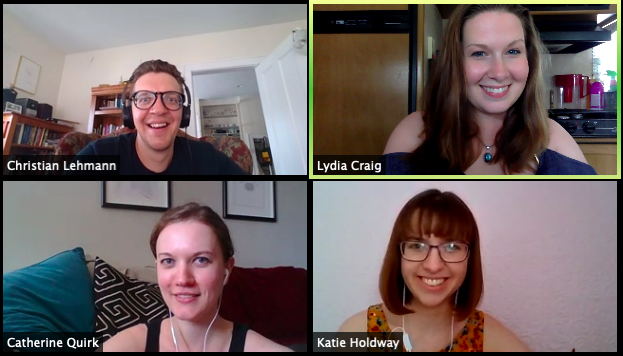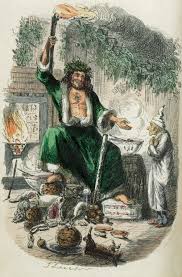Call for Posts for the Dickens Society Blog
The Dickens Society Blog is under new editorship! Dr Katie Bell and Katie Holdway are looking for engaging submissions from scholars at all career stages on any aspect of Dickensian research. For the fall/winter term of 2020, we particularly welcome posts from researchers new to...
#Dickens150: The First Global Online Gathering for Dickens
This conference report has been contributed by Renata Goroshkova, St. Petersburg State University, Russia. Read her most recent posts here and here. June 9 will definitely go down in the history of Dickens studies since it marked the first online large-scale zoom conference. #Dickens150, organized...
A New Dickensian Venture
“I heard some voices, familiar in my ears I thought” Bleak House, ch. 37 The Dickens Society is excited to announce their latest venture in all things Dickensian, this one carefully curated for your ears, and thus for your walks, commutes, and relaxation. That’s right,...
Steve Weinshel on the Dickens Society YouTube Channel
Steve Weinshel is the maternal great-great-great grandson of Dr. Godfrey Howitt (1800-1873), the younger brother of author William Howitt (1792-1879). Weinshel shares events from the lives of his distant uncle and aunt, William and Mary Botham Howitt, who were Victorian writers, journalists, translators, and adventurers,...
COVID-19 Matching Program
“Mankind was my business; charity, mercy, forbearance, and benevolence, were, all, my business. The deals of my trade were but a drop of water in the comprehensive ocean of my business!” Charles Dickens, “A Christmas Carol” So far, individuals have contributed a total of $3100...
Into the Dickens-Verse, pt. 2
This is the second part of Christian Lehmann’s analysis of how Into the Spider-Verse engages with Great Expectations. To read part one, click here. When we left off last time, we had set up a number of ways in which Great Expectations appears throughout Spider-Verse. In this installment,...
Into the Dickens-Verse
This post has been contributed by Christian Lehmann, Bard High School Early College, Cleveland. Read his previous contribution here. On January 16th 2019 I wrote a Twitter thread about Great Expectations in Spider-Man: Into the Spider-Verse. I am grateful for the Dickens Society communications team...
Lillian Nayder on the Dickens Society YouTube Channel
Lillian Nayder is Professor of English at Bates College in Lewiston, Maine. She teaches courses on nineteenth-century British fiction, including “Jane Austen: Then and Now,” “The Brontës,” and “Dickens Revised.” Her seminar topics include “The Arctic Sublime” and “Victorian Crime Fiction.” Her research interests center...
Nabokov’s Father as “an Authority on Dickens”: Part Two
This post has been contributed by Renata Goroshkova, St. Petersburg State University, Russia. Read her previous posts here and here. This post is in two parts. Read the first part here. The next article was written with an academic purpose, and aimed to give a...
Nabokov’s Father as “an Authority on Dickens”: Part One
This post has been contributed by Renata Goroshkova, St. Petersburg State University, Russia. Read her previous posts here and here. This post is in two parts. Read the second part here. Vladimir Nabokov writes to Edmund Wilson in a letter of 1950: “My father had...






